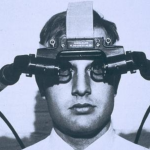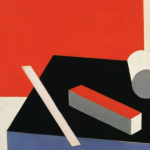2005
"Rather than gathering in the South Ballroom for the plenary, we read into gardens, playrooms, cars, stores, home offices, and kitchen tables. These sites are not homey, though, in any Palmolive way." Bill Stobb reviews a collection of writers who consider the complexities of artmaking and motherhood.
2004
Stephen Schryer reviews Mark Taylor and casts a critical eye on the unconditional celebration of complexity.
Lisette Gonzales reviews a book of essays by Matthew Fuller that examines the way we are programmed by software.
"Sedgwick's emphasis is on generating concepts that add to the complexity and inclusiveness of our representations, rather than trying to prescribe the right revolutionary path." Melissa Gregg reviews Eve Sedgwick's Touching Feeling.
Davis Schneiderman reviews two works on Burroughs - a writer who is both there and not there, who exemplifies and escapes post-structuralist readings and postmodernist celebrations.
Jenny Weight reviews William Mitchell's third book, Me++: The Cyborg Self and the Networked City.
Joseph Tabbi reviews Joe Conte's Design and Debris and gauges the argument for chaotics-as-aesthetics across media.
Tim Keane reviews Genet's republished Prisoner of Love, a 'mirror-memoir' in which Genet sees Palestine from the inside in an attempt to see himself from the outside.
2003
Marc LaFountain reviews a new collection of Bataille's writings and considers the philosopher's thoughts on prayer in a system and practice of atheology.
Infiltrate, animate, dominate. Lisette Gonzales reviews Derek Pell's Little Red Book of Adobe LiveMotion.
Steve Shaviro reviews Tomorrow Now by Bruce Sterling, a book that (for an eminent cyberpunk novelist) is perhaps too sane and sensible.
Darren Tofts reviews a popularization by Marie O'Mahony and an auto-critique of cyberculture by Andrew Murphie and John Potts.
Scott Rettberg introduces 'New Media Studies': a cluster of reviews, and a term (similar in its emergence to the term 'Postmodernism').
Komninos Zervos reviews the Hayles/Burdick collaboration, Writing Machines (2003), and reengages the cyberdebates (initiated in Y2K).
Aaron Pease reviews Manual DeLanda's philosophy of the virtual.
2002
Virginia Kuhn reviews an essay collection - Cybertext: Yearbook 2000 - ambivalent about its own printed status.
Steffen Hantke reviews the reviewers of Don DeLillo's Body Artist, dispelling the notion that, after Underworld, the shorter book is necessarily a slighter one.
2001
Joseph Tabbi reviews the essay collection Simulacrum America.

